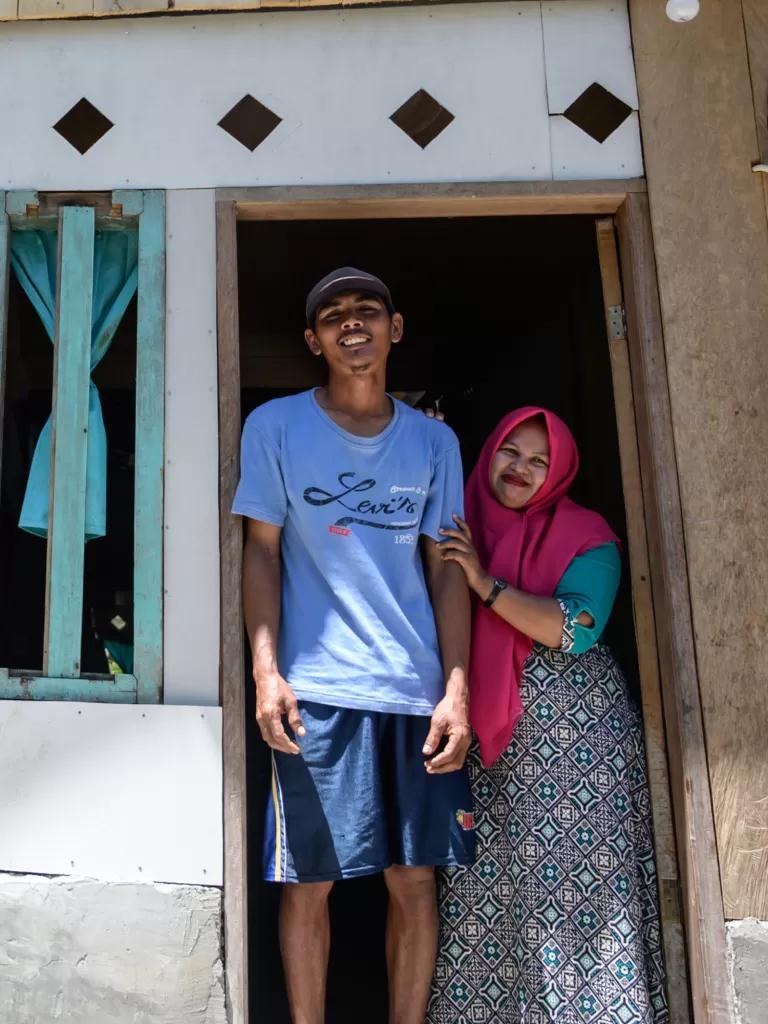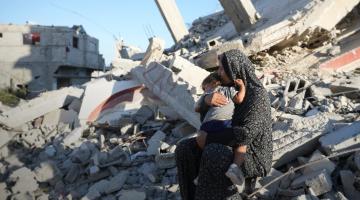

First it’s about
saving lives,
then it’s about
rebuilding them
First it’s about saving lives,
then it’s about rebuilding them
Your donations help DEC charities save lives in the immediate aftermath of a disaster. But then the work to rebuild communities shattered by catastrophe begins.
18 December 2019Eko and Uchi stand in the doorway of their house in Donggala, Indonesia, which they built using a cash grant from Save the Children using DEC funds. Image: Hariandi Hafid/DEC

Ilda sits outside the house that she rebuilt using tools and materials provided by Age International using DEC funds, in Sofala province, Mozambique. Image: Peter Caton/DEC

Hijrah puts salt from her salt farm into bags to sell in Palu, Indonesia. She received help from Oxfam to help restart her business using DEC funds. Image: Hariandi Hafid/DEC

Joelma, 11, (right) and her sister Elsinha*, 4, at a World Vision children's centre funded by the DEC near Buzi, Mozambique. Image: Peter Caton/DEC

Ibrahim (left) and his family sit in their partially constructed house which they are building using a cash grant from Save the Children using DEC funds. Image: Hariandi Hafid/DEC

Joaquin checks on his newly germinated crops in Sofala province, Mozambique. World Vision distributed drought and pest-resistant seeds using DEC funds to help farmers start growing again. Image: Peter Caton/DEC

Mesar (left) and his friend Jokson work on maintaining the water system installed in their village in Donggala, Indonesia by Oxfam using DEC funds. Image: Hariandi Hafid/DEC
Recent appeals




